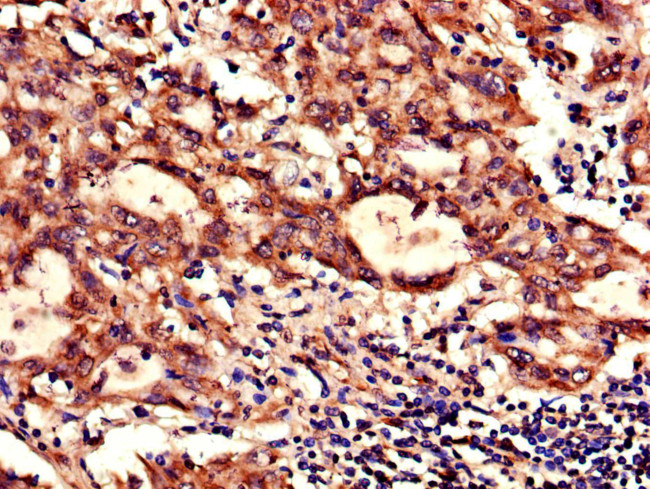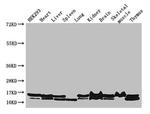Search Thermo Fisher Scientific
Product Details
PA5-98002
Species Reactivity
Host/Isotype
Class
Type
Immunogen
Conjugate
Form
Concentration
Purification
Storage buffer
Contains
Storage conditions
Shipping conditions
RRID
Target Information
Methylation of cytosine at CpG dinucleotides is a common feature of many higher eukaryotic genomes. Increasing evidence indicates that recruitement of histone deacetylase complexes by methyl-CpG-binding proteins (MeCP) is a major mechanism of methylated DNA silencing. P66, a zinc finger-containing protein is one of the components of the MeCP1 complex. P66 and p68, the two components of MeCP1 are different forms of the same zinc finger-containing protein and are conserved from C.elegans to humans. Homologs of p66 from different organisms revealed two highly conserved regions, CR1 and CR2. While CR1 is involved in the association of p66 with other MeCP1 components, CR2 plays an important role in targeting p66 and MBD3 to specific loci.
For Research Use Only. Not for use in diagnostic procedures. Not for resale without express authorization.
References (0)
Bioinformatics
Protein Aliases: CI-B17; complex I, mitochondrial respiratory chain, B17 subunit; Complex I-B17; NADH dehydrogenase (ubiquinone) 1 beta subcomplex, 6, 17kDa; NADH dehydrogenase [ubiquinone] 1 beta subcomplex subunit 6; NADH-ubiquinone oxidoreductase B17 subunit; NADH-ubiquinone oxidoreductase beta subunit, 6
Gene Aliases: B17; CI; Gm137; NDUFB6
UniProt ID: (Human) O95139, (Mouse) Q3UIU2
Entrez Gene ID: (Human) 4712, (Mouse) 230075

Performance Guarantee
If an Invitrogen™ antibody doesn't perform as described on our website or datasheet,we'll replace the product at no cost to you, or provide you with a credit for a future purchase.*
Learn more
We're here to help
Get expert recommendations for common problems or connect directly with an on staff expert for technical assistance related to applications, equipment and general product use.
Contact tech support



